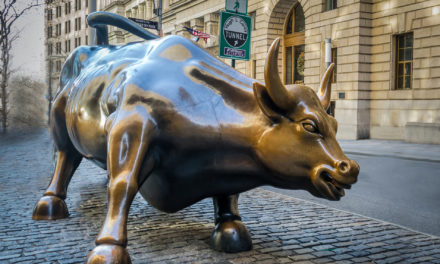
“Someone’s sitting in the shade today because someone planted a tree a long time ago.”
— Warren Buffett
A key lesson we can learn from Warren Buffett, is about how to think about a potential stock investment in the context of a long-term time horizon. Every investor in a stock has a choice: bite our fingernails over the short-term ups and downs that are inevitable with the stock market, or, zero in on stocks we are comfortable to simply buy and hold for the long haul — maybe even a two-decade holding period. Heck, investors can even choose to completely ignore the stock market’s short-run quotations and instead go into their initial investment planning to hold on for years and years regardless of the fluctuations in price that might occur next.
Today, we examine what would have happened over a two-decade holding period, had you decided back in 2002 to buy shares of Yum! Brands Inc (NYSE: YUM) and simply hold through to today.
| Start date: | 10/21/2002 |
|
|||
| End date: | 10/18/2022 | ||||
| Start price/share: | $8.81 | ||||
| End price/share: | $111.48 | ||||
| Starting shares: | 1,135.07 | ||||
| Ending shares: | 1,582.21 | ||||
| Dividends reinvested/share: | $18.64 | ||||
| Total return: | 1,663.84% | ||||
| Average annual return: | 15.43% | ||||
| Starting investment: | $10,000.00 | ||||
| Ending investment: | $176,488.08 | ||||
The above analysis shows the two-decade investment result worked out exceptionally well, with an annualized rate of return of 15.43%. This would have turned a $10K investment made 20 years ago into $176,488.08 today (as of 10/18/2022). On a total return basis, that’s a result of 1,663.84% (something to think about: how might YUM shares perform over the next 20 years?). [These numbers were computed with the Dividend Channel DRIP Returns Calculator.]
Beyond share price change, another component of YUM’s total return these past 20 years has been the payment by Yum! Brands Inc of $18.64/share in dividends to shareholders. Automatic reinvestment of dividends can be a wonderful way to compound returns, and for the above calculations we presume that dividends are reinvested into additional shares of stock. (For the purpose of these calcuations, the closing price on ex-date is used).
Based upon the most recent annualized dividend rate of 2.28/share, we calculate that YUM has a current yield of approximately 2.05%. Another interesting datapoint we can examine is ‘yield on cost’ — in other words, we can express the current annualized dividend of 2.28 against the original $8.81/share purchase price. This works out to a yield on cost of 23.27%.
Here’s one more great investment quote before you go:
“Waiting helps you as an investor and a lot of people just can’t stand to wait. If you didn’t get the deferred-gratification gene, you’ve got to work very hard to overcome that.” — Charlie Munger




